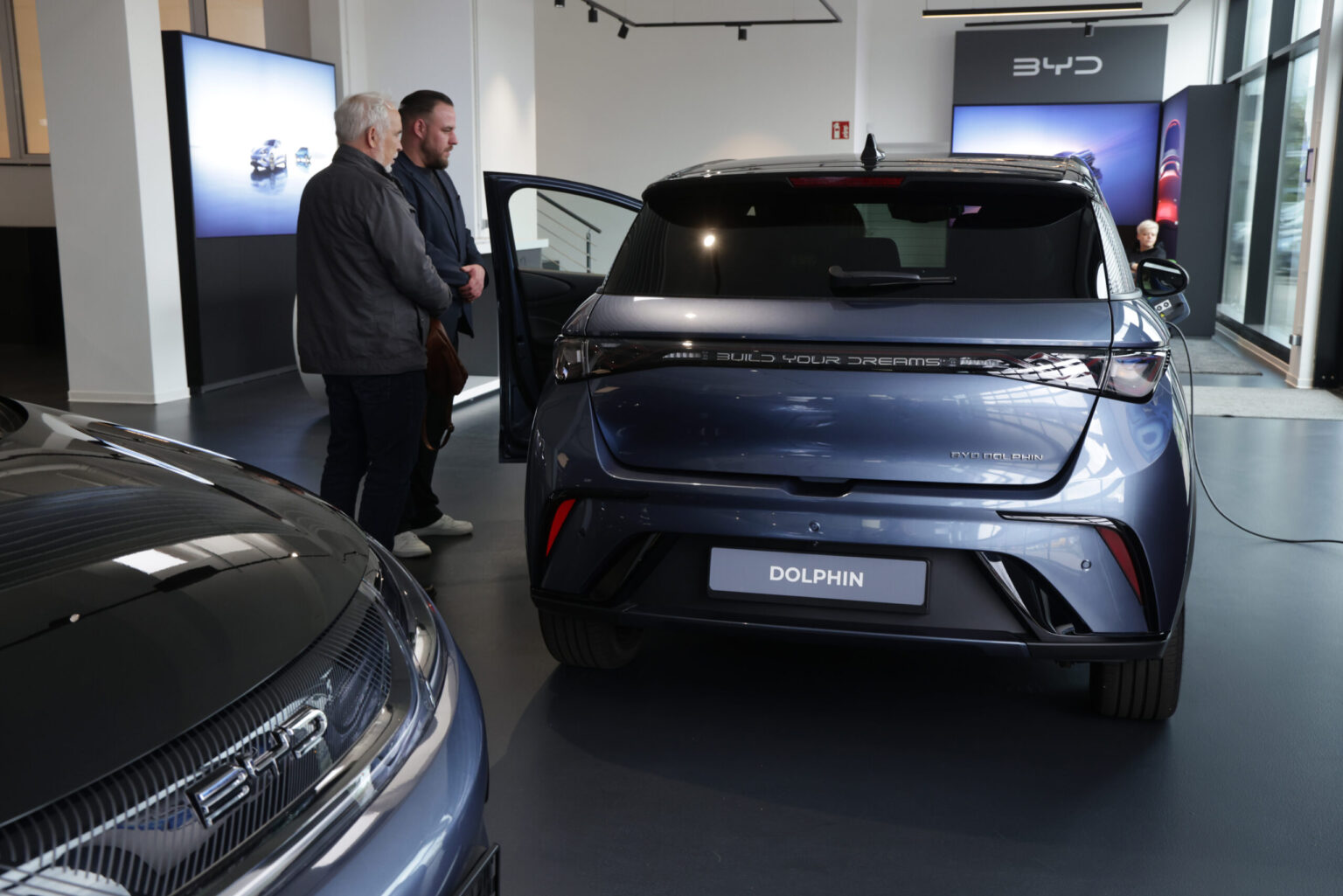5:05
News Story
Tariffs to be sharply hiked by Biden administration on Chinese-made products
WASHINGTON — The Biden administration is doubling and in some cases tripling tariffs on Chinese-made products, like steel and electric vehicles, in a move aimed at easing economic pain in battleground states, though senior administration officials say it isn’t political.
National Economic Advisor Lael Brainard told reporters on a call Monday ahead of the announcement that the steep increase to several tariffs would help address the Chinese government “flooding global markets with exports that are underpriced due to unfair practices.”
“We know China’s unfair practices have harmed communities in Michigan and Pennsylvania and around the country that are now having the opportunity to come back due to President Biden’s investment agenda,” Brainard said, mentioning two crucial swing states ahead of November’s election.
President Joe Biden’s decision to increase several tariffs, Brainard said, ensures “that American businesses and workers have the opportunity to compete on a level playing field in industries that are vital to our future, such as clean energy and semiconductors.”
Here are the tariffs that will increase and when the White House will implement those changes:
- Steel and aluminum will move from a 7.5% tariff to a 25% tariff this year.
- Semiconductor tariffs will rise from 25% to 50% before 2025.
- Electric vehicle tariffs will increase from 25% to 100% this year.
- Batteries: The tariff on lithium-ion EV batteries and battery parts will rise from 7.5% to 25% in 2024. The tariff on lithium-ion non-EV batteries will rise to the same level in 2026.
- Solar cells will rise from a 25% tariff to a 50% tariff this year.
- Ship-to-shore cranes will get a 25% tariff this year. They currently aren’t subject to tariffs.
- Medical products: Tariffs on personal protective equipment, including face masks, will increase this year and tariffs on rubber medical and surgical gloves will go up in 2026. Both will be set at 25%. Tariffs on syringes and needles will go from not having a tariff to 50% in 2024.
Senators appealed for tariff increases
A group of seven Democratic U.S. senators wrote to Biden earlier this month, urging him and United States Trade Representative Katherine Tai to “maintain or increase the tariffs to address China’s continued actions to cheat and undermine our national security.”
Sherrod Brown of Ohio, Tammy Baldwin of Wisconsin, Bob Casey and John Fetterman of Pennsylvania, Gary Peters and Debbie Stabenow of Michigan and Senate Majority Leader Chuck Schumer of New York all signed on to the letter.
The senators wrote that tariffs “are an important tool to level the playing field and combat anti-competitive practices from non-market economies and trade cheats, and they must remain in place.”
“China has continued to cheat, circumvent, and manipulate to artificially strengthen its economy and harm the United States,” the senators wrote. “Across sectors like steel, solar products, and electric vehicles, China employs tactics to distort markets and create artificially low prices by illegally subsidizing its industries and producing to overcapacity.”
Tariffs on electric vehicles
A senior administration official, speaking with reporters on background Monday to discuss details of the changes, said the higher tariffs on electric vehicles are necessary to avoid China having an unfair share of the global market.
“If we have a level playing field, we and other countries will have the chance to compete and that’s the kind of dynamic that we think will produce resilient supply chains and clean technology and give us our best chance of meeting our climate goals,” the senior administration official said.
A second senior administration official declined to “speculate” about whether China would set retaliatory tariffs on U.S. goods, saying that officials from that country are likely to speak publicly in the coming days.
A third senior administration official on the call said the decision to raise certain tariffs and the timing of the announcement “has nothing to do with politics.”
That official also said there are differences between the production of electric and gas-powered vehicles in China, which is why the Biden administration is raising tariffs on one, but not the other.
“We’ve been thoroughly studying and assessing how the Chinese have been investing in their electric vehicle domestic industry and the range of unfair best practices that are giving them a significant unfair pricing competitive advantage,” the third official said. “So I think that’s the reason why we’re moving towards a significant step up in the tariff rate for electric vehicles.”
Our stories may be republished online or in print under Creative Commons license CC BY-NC-ND 4.0. We ask that you edit only for style or to shorten, provide proper attribution and link to our website. AP and Getty images may not be republished. Please see our republishing guidelines for use of any other photos and graphics.




